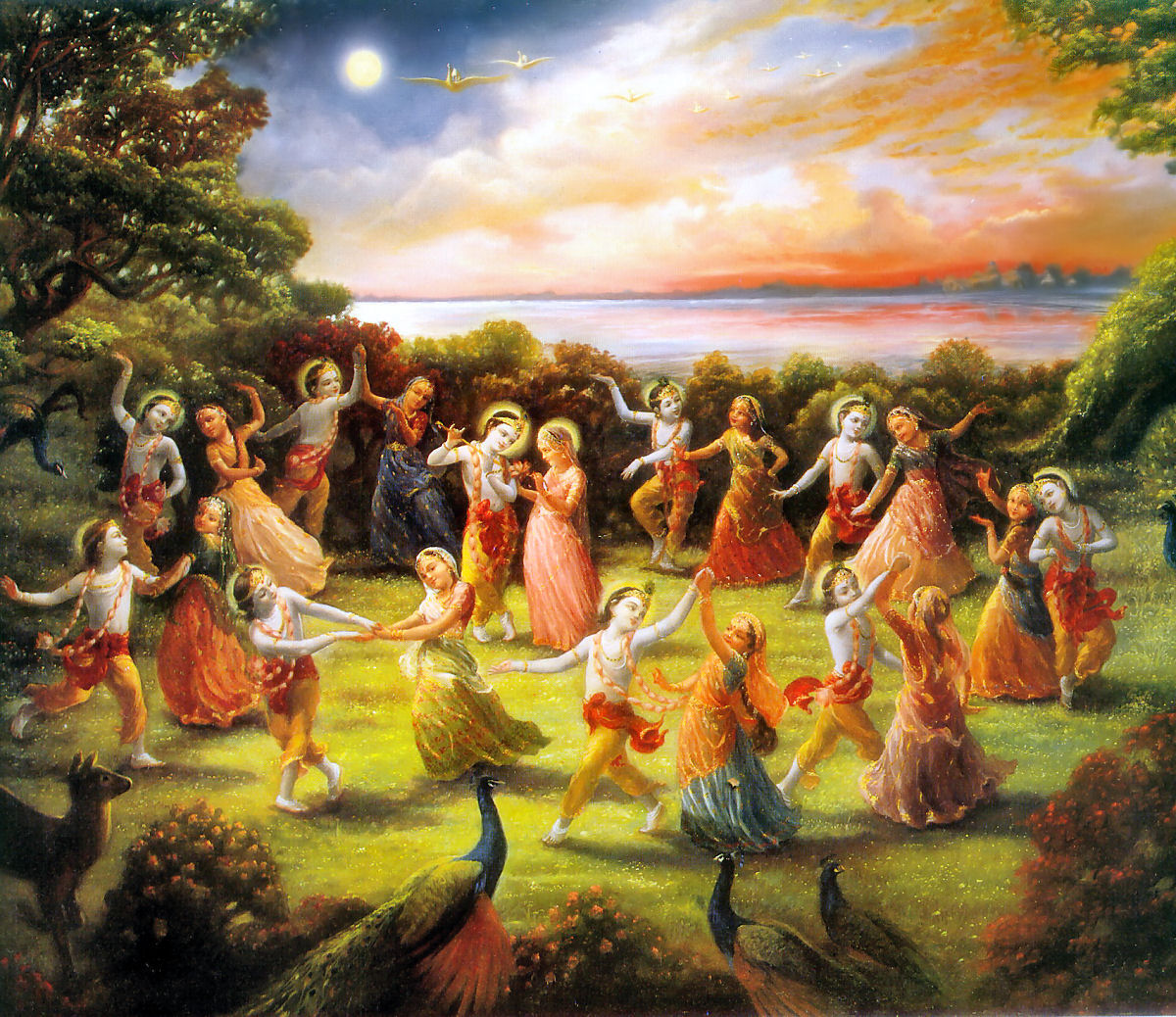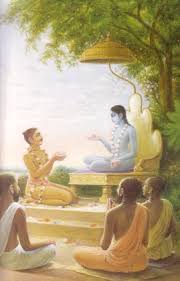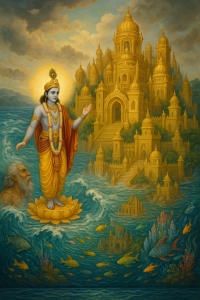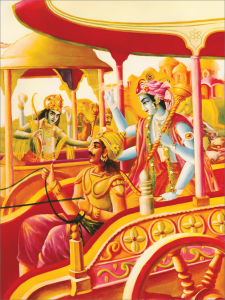A Divine Autumn Night in Vṛndāvana
It was the full-moon night of the Śarat season, when the skies were clear, the breeze was cool, and the lotus-filled Yamunā shimmered like liquid moonlight. The fragrance of blooming flowers and the soft buzzing of bees filled the air. Everything in nature was steeped in divine romantic beauty—as if awaiting a celestial event.
In this most auspicious atmosphere, Śrī Kṛṣṇa, the Lord of Vṛndāvana, prepared to fulfill a promise He had made to His most intimate devotees—the gopīs of Vraja.
Kṛṣṇa Plays the Flute
Standing beneath a kadamba tree, Kṛṣṇa lifted His murali (flute) to His lips and played a melody so sweet, so penetrating, that it pierced the hearts of the gopīs like an arrow of love. Hearing that call, they instantly abandoned their household duties, family obligations, and social decorum. Some left milk boiling on the stove, others ran without finishing dressing.
They had only one thought: Kṛṣṇa is calling. We must go.
The Gopīs Arrive
The gopīs arrived breathless, their faces glowing with emotion. Their eyes searched for the Lord who had captivated their hearts. When they found Him, standing like a fresh monsoon cloud, His peacock feather waving gently in the moonlight, they were overcome with joy.
But Kṛṣṇa, testing their sincerity, playfully said:
“Why have you come here, O virtuous ladies? It is night. Should you not be with your husbands and families? The forest is dangerous. Return to your homes.”
The Gopīs’ Reply
The gopīs replied with tears and longing:
“We belong to You alone, O beloved. You are our heart’s Lord, the breath of our life. Please don’t send us away. You called us with Your flute—we have come in love. Do not reject us.”
Moved by their unwavering devotion, Kṛṣṇa smiled and embraced them with His eyes, acknowledging the depth of their love.
The Rāsa Begins
Then, in the clearing near Govardhana, beneath the full moon’s glow, Kṛṣṇa began the Rāsa-līlā—the transcendental dance of divine love. By His mystic power, He expanded Himself to dance with each gopī individually, so that every one of them felt:
“Kṛṣṇa is with me alone.”
Hand in hand, they moved in perfect rhythm, their anklets chiming in harmony with the flute. The moon paused in the sky. The demigods gathered above, showering flowers in wonder. The forest lit up with divine radiance, and the very dust of Vraja glowed with spiritual light.
Love Beyond Measure
This dance was not of the body—it was a dance of souls surrendered to their beloved, and of the Supreme Lord bestowing Himself fully to His devotees.
The gopīs’ hearts were steeped in prema (divine love), completely devoid of ego or desire. And Kṛṣṇa, though self-satisfied, allowed Himself to be conquered by their love.
Kṛṣṇa Disappears
At one point, testing their attachment further, Kṛṣṇa vanished from the Rāsa. The gopīs, plunged into separation, wandered through the forest, crying out His names, enacting His pastimes, and begging the trees, creepers, and animals for His darśana.
Eventually, when their longing reached its peak, Kṛṣṇa reappeared, smiling gently, His heart softened by their love.
The Rāsa-līlā Resumes
Together again, they resumed the Rāsa-līlā, deeper than before—no longer just a dance, but a revelation of the eternal relationship between the soul and the Supreme Lord.
Lessons to Be Learned:
- The Lord answers the call of pure love, not of ritual or status.
- Rāsa-līlā is not worldly romance but the highest expression of divine love.
- The gopīs’ surrender is the ideal of bhakti—they left everything for Kṛṣṇa, without hesitation.
- Even the Lord, though all-powerful, becomes subordinate to His devotees when they love Him selflessly.
- In separation, the devotee’s love intensifies, and Kṛṣṇa reappears to reciprocate that love.
Origin of the Story: Harivaṁśa Purāṇa – Viṣṇu-parva, Chapters 62–67



